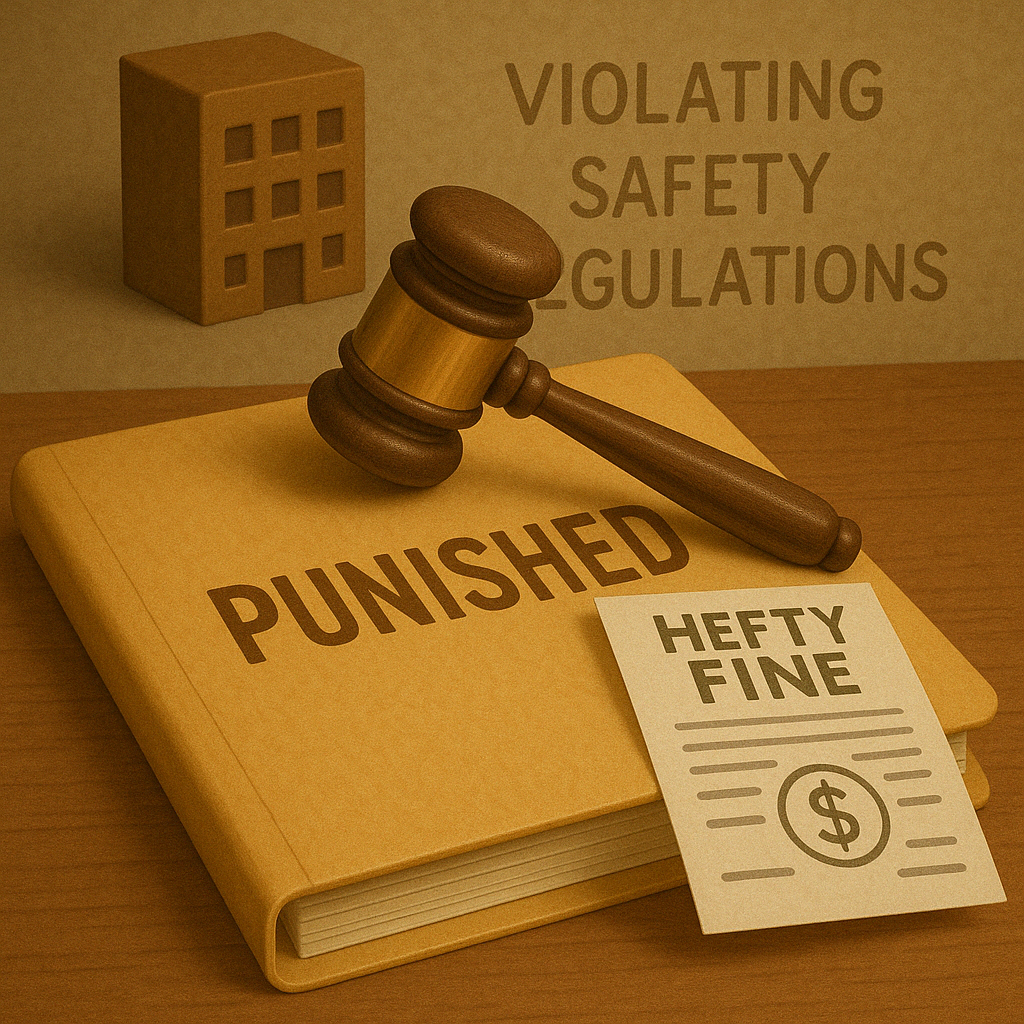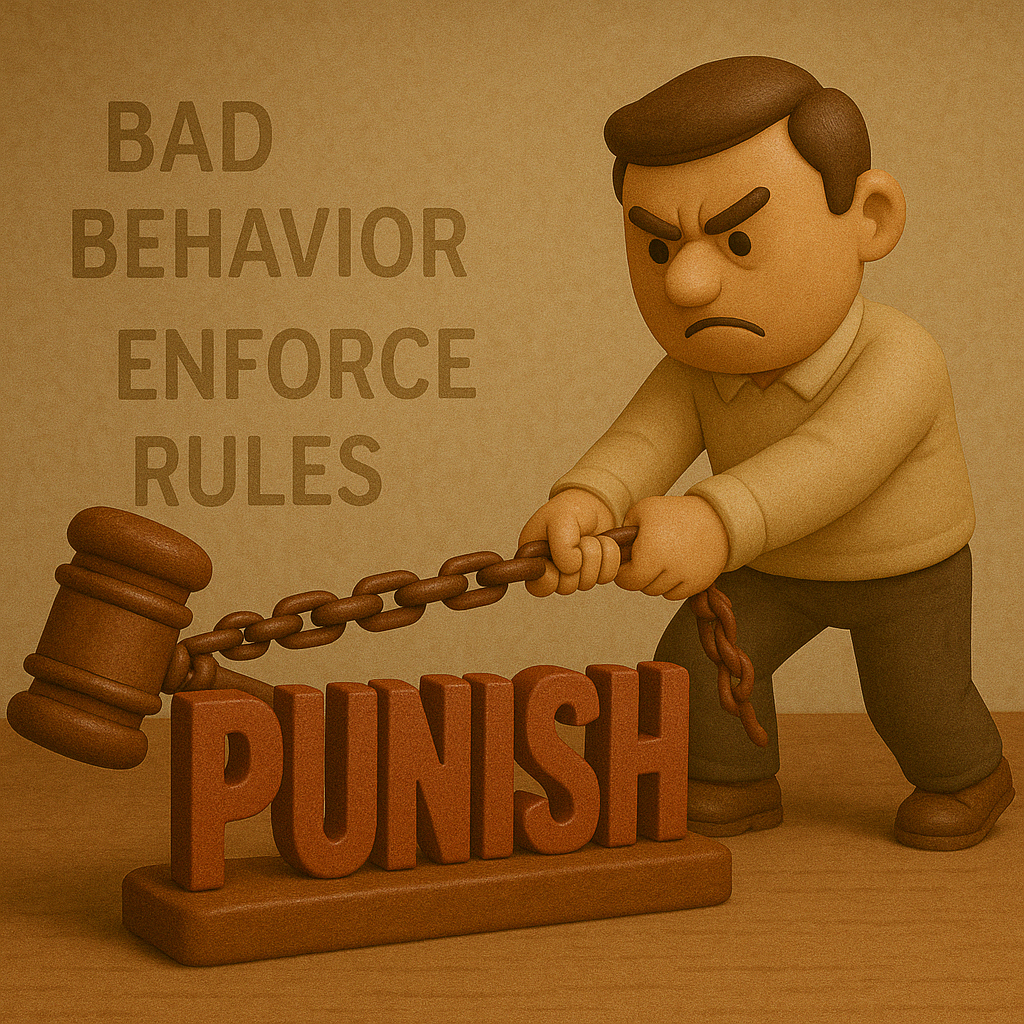Punish
Definition
The term "punish" describes the act of imposing a penalty on someone as a consequence of wrongdoing or unacceptable behavior.
Parts of Speech
- Verb
Pronunciation
American English
- IPA Pronunciation: /ˈpʌn.ɪʃ/
- Respelling: PUN-ish
British English
- IPA Pronunciation: /ˈpʌn.ɪʃ/
- Respelling: PUN-ish
Etymology
The word "punish" originates from the Latin "punire," meaning "to inflict pain or a penalty," which is derived from "poena," meaning "penalty" or "pain." It entered Middle English via Old French "punir" in the 13th century.
Derivatives
- Punishment (noun)
- Punishable (adjective)
- Punitive (adjective)
- Overpunish (verb)
- Punisher (noun)
Synonyms
- Discipline
- Reprimand
- Penalize
Antonyms
- Reward
- Praise
- Forgive
Usage
The term "punish" is commonly used in legal, social, and disciplinary contexts. For example, "The court decided to punish the offender with a fine," or "Parents often punish children by restricting privileges."
Related Terms
- Penalty: A punishment imposed for breaking a rule or law.
- Discipline: A method of training or controlling behavior through correction.
- Retribution: Punishment inflicted as vengeance for a wrong act.
Detailed Definitions
Verb
- To impose a penalty or sanction on someone for an offense or wrongdoing:
- Example: "The teacher decided to punish the student for cheating on the test."
- To cause suffering or loss as a consequence of unacceptable behavior:
- Example: "The company was punished with a hefty fine for violating safety regulations."
- To discipline or correct through punitive measures:
- Example: "He believes it is necessary to punish bad behavior to enforce rules."
punish



🇨🇳 Mandarin
- 惩罚 (chéngfá): Punish
- IPA: /ʈʂʰə̌ŋ.fǎ/
- Respelling: chuhng-fah
🇮🇳 Hindi
- सजा देना (saja dena): Punish
- IPA: /səd͡ʒaː d̪eːnaː/
- Respelling: suh-ja dey-na
🇪🇸 Spanish
- Castigar: Punish
- IPA: /kastiˈɣaɾ/
- Respelling: kas-tee-gar
🇫🇷 French
- Punir: Punish
- IPA: /py.niʁ/
- Respelling: pyuh-neer
🇦🇪 Modern Standard Arabic
- يعاقب (yu'āqib): Punish
- IPA: /juˈʔɑːqib/
- Respelling: yoo-a-kib
🇧🇩 Bengali
- শাস্তি দেওয়া (shaasti deoya): Punish
- IPA: /ʃaːsti deɔwja/
- Respelling: shaas-ti deo-ya
🇷🇺 Russian
- Наказывать (Nakazyvat'): Punish
- IPA: /nɐkɐˈzɨvətʲ/
- Respelling: na-ka-zy-vat'
🇵🇹 Portuguese
- Punir: Punish
- IPA: /puˈniɾ/
- Respelling: poo-neer
🇮🇩 Indonesian
- Menghukum: Punish
- IPA: /məŋhukum/
- Respelling: meng-hoo-kum
🇩🇪 German
- Bestrafen: Punish
- IPA: /bəˈʃtraːfən/
- Respelling: be-shtraa-fen
🇯🇵 Japanese
- 罰する (Batsu suru): Punish
- IPA: /batsu suɾu/
- Respelling: batsu suru
🇻🇳 Vietnamese
- Trừng phạt: Punish
- IPA: /tʃʊŋ˨ˀ˦ pʰat̚˦ˀ˥/
- Respelling: chung phat
🇰🇷 Korean
- 처벌하다 (cheobeolhada): Punish
- IPA: /tʃʰʌ.bʌl.ha.da/
- Respelling: cheo-beol-ha-da
🇹🇷 Turkish
- Cezalandırmak: Punish
- IPA: /dʒezaːlandɯɾmak/
- Respelling: je-zalan-dur-mak
🇵🇰 Urdu
- سزا دینا (saza dēna): Punish
- IPA: /səzaː d̪eːnaː/
- Respelling: sa-za day-na





